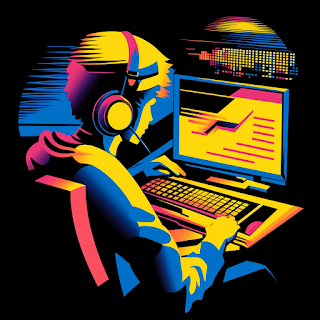As AI improves its ability to write code, many wonder if companies will start building more in-house software. While the idea that AI might replace human programmers has been discussed for years, the reality is that AI is more likely to augment the work of human developers, making them more efficient and effective.
History of AI in Software Development
The use of AI in software development is not a new concept. Researchers and developers have been exploring ways to use AI to automate repetitive tasks, improve code quality, and even generate code itself for decades. However, the recent advancements in AI have made it more feasible for companies to consider building more software in-house.Benefits of In-House Software Development
Building software in-house has several benefits. Companies can maintain control over their code and ensure that it meets their specific needs. They can also avoid the costs associated with outsourcing software development, such as communication breakdowns and intellectual property concerns.How AI Will Impact In-House Software Development
As AI becomes more capable of writing code, it will likely significantly impact in-house software development. Here are a few ways AI will change the game:- Increased Efficiency: AI can automate many repetitive tasks, freeing human developers to focus on higher-level tasks requiring creativity and problem-solving skills.
- Improved Code Quality: AI can review and improve code, reducing the number of bugs and errors.
- Enhanced Collaboration: AI can help developers work together more effectively by providing real-time feedback and suggestions.
Will Companies Build More Software In-House?
While AI will certainly change how companies develop software, it's unlikely to replace human programmers entirely. Instead, AI will likely augment the work of human developers, making them more efficient and effective. As AI improves, we can expect more companies to build software in-house. This is because AI will enable companies to develop high-quality software quickly and efficiently without needing a large team of developers.Role of AI in In-House Software Development
The role of AI in in-house software development will be multifaceted. Here are a few ways AI will be used:- Code Generation: AI will generate code, which human developers can then review and improve.
- Code Review: AI will review the code, identify errors, and suggest improvements.
- Collaboration Tools: AI will provide developers with real-time feedback and suggestions, helping them collaborate more effectively.
Challenges of In-House Software Development
While the benefits of in-house software development are clear, there are also several challenges to consider. Here are a few:- Talent Acquisition: Finding and hiring skilled developers can be challenging, especially in a competitive job market.
- Cost: Developing software in-house can be expensive, especially if you're building a large team of developers.
- Time: Developing software in-house can take a long time, especially if you're building a complex system.

Comments